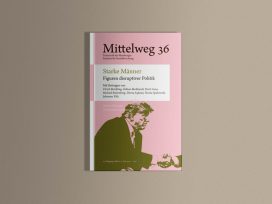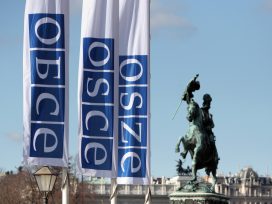A tale of two Putins
Having turned the law into an instrument of state policy and private vendetta, and having turned the legislature into a caricature without power or independence, can Vladimir Putin afford to become an ex-president? As the Russian leader prepares to be re-anointed in an election on 18 March, Mark Galeotti explores Putin’s options.
On 18 March, Vladimir Putin will, it is safe to predict, win re-election. The real questions relate to what happens after the election, with some predicting a thaw, while others expect even more authoritarian policies. Will Prime Minister Dmitry Medvedev be replaced? Will there be renewed overtures to the West? In many ways, though, this may betray our own biases, as Kremlinologists from democratic nations naturally assume that an election represents a boundary point from one state to another. Yet in a system such as Putin’s, sometimes described as a managed democracy, it is much more clearly managed than democratic. Indeed, of late it has come to feel as if the Kremlin regards the various trappings of democracy – not just elections but also press conferences, legislative sessions and consultations – as an increasingly irritating burden.
Nonetheless, it is likely that there will be changes of some kind after the election, or at least there are many insiders and near-insiders telegraphing this. Much less clear is precisely what the changes will look like – reflecting an uncertainty of Putin and his inner circle and a fundamental division between two sides of the regime.
The two ‘bodies’
Putin is both an individual and a synecdoche – shorthand for a group of powerful movers and shakers around ‘the body’ (as his confidantes call him). Both Putin-the-man and Putin-the-governing-cabal are dynamic phenomena, changing over time. One interesting question is whether this year will see them evolving in step with each other, or growing apart?
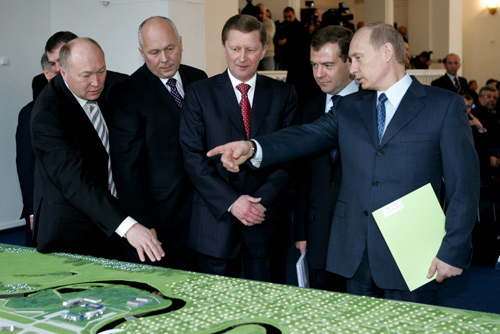
President Putin pictured with Sergei Chemezov (second from left), Sergei Ivanov (centre) and Dmitry Medvedev (second from right) in February 2008. Source: Wikimedia
Putin-the-man has travelled the longer road. When he came to power in 1999, he wrapped pragmatic domestic and foreign policies in the language of nationalism. He was committed to rebuilding a strong and capable central government out of the ruins left by the Soviet collapse and Boris Yeltsin’s failures. To this end, his focus was domestic and he saw a working relationship with the West as a necessity. The oligarchs were tamed, the Chechens brutally subdued and the newly-peaking oil and gas revenues diverted to restoring the fortunes of the state, appeasing a kleptocratic elite and rewarding a long-suffering populace.
Over time, though, Putin has increasingly seen the West not simply as different but as antagonistic. By the time he gave his uncompromising speech at the 2007 Munich Security Conference, he was already expressing his anger. Nonetheless, while he is no democrat, he did still seem to accept the notion of some kind of political transition and, at least, the supremacy of the forms of constitutionality when in 2008 he handed the presidency to Medvedev, settling back into the role of prime minister (albeit one with special powers and authority). This appears to have been an extended audition that Medvedev failed, but that probably had less to do with him and more to do with Putin.
After all, Putin has returned to the Kremlin seemingly – as so many authoritarian leaders do over time – convinced of his indispensability and his destiny to ‘make Russia great again’. The nationalism is no longer married with pragmatism, it is increasingly at the heart of his politics. ‘Sovereignty’ – a concept that wraps together limited imperialism (as witnessed by the efforts to force a recalcitrant Kyiv to acknowledge Moscow’s suzerainty), as well as an active resistance to the constraints of international norms and laws – is at the centre of this mission. To this end, he is willing to spend blood and treasure to assert Russia’s role as a ‘great power’, something he views in positively 19th century terms.
It is much harder to see Putin-the-collective making the same transition. To be sure, everyone around him parrots the rhetoric of the moment, pretending to despise the West and to be delighted to appear on the sanctions lists. At the same time, though, this is clearly no more than necessary to appease ‘the body’. In practice, they are the same cynical kleptocrats as ever, eager to take advantage of western property rights in order to protect the money they have spent at home, happy to enjoy the western lifestyle, determined to offer its advantages to their children. On the most superficial of levels, no one is swapping their imported BMWs and iPhones for Russian-made Ladas and YotaPhones.
Power and the presidency
This raises the question of power in the system and what happens when the interests and ambition of the ‘two Putins’ diverge. All political systems depend on legitimacy – on the willingness of those below to obey those above. This is typically buttressed and expressed through institutions. However, the story of post-Soviet Russia has been a story of progressive de-institutionalization. In the 1990s Boris Yeltsin allowed the state to decay. He undermined the fundamental credibility of law by shelling a recalcitrant parliament into submission in 1993 and then rewriting the constitution to make that retrospectively legal, later rigging the 1996 elections.
If Yeltsin’s rule was the de-institutionalization of anarchy, with state structures becoming hollowed out through a lack of direction and resources, Putin’s was one driven by statism. Institutions – the courts, the ministries, the Orthodox Church, the – simply became instruments of the state, and the state in this sense means Putin. Instead of having their own missions and places within the political system – anything that might give them a degree of autonomy – they are now whatever the Kremlin wants them to be, whenever it wants. us, the domestic security service, the FSB, appears to have more traction on foreign policy than the foreign ministry simply because Putin trusts and values them more. And, moreover, its director, Alexander Bortnikov, has a closer personal relationship with ‘the body’ than the foreign minister, Sergey Lavrov. Likewise, Igor Sechin, head of the powerful state-owned oil conglomerate Rosneft, can have a minister framed and convicted of corruption and can gobble up rival corporations, even if, in theory, he is just a businessman with no direct political power. But he is a long-time Putin confidant. Sechin’s rival, Alexei Ulyukaev, the minister of economic development, was ‘just’ a government minister, without that all-important human connection.
It is important to note that Ulyukaev’s trial and conviction were not decreed from the Kremlin; quite the opposite. They reflected this new detachment. However serious the harm to the morale of many within the elite, however distasteful the spectacle of an obvious frame up, the Kremlin has allowed Sechin to pursue a personal feud without doing more than registering mild dissatisfaction.
When power is essentially personalised, when institutions have been hollowed out, then this is essentially governance through a court. Putin rules through a collection of ‘adhocrats’ whose formal positions matter much less than what they are tasked to do from day to day. It helps explain why Putin is standing for president again. The talk in Moscow is that Putin is bored with ruling Russia. This is reinforced by his lacklustre demeanour in public appearances as well as the minimalist nature of his election campaign. He scarcely comes to the Kremlin when he can avoid it, and the man once infamous for the mastery of his brief is, apparently, increasingly disinclined to get into detail.
In such a system, how does one relinquish power and what level of security would such a move entail? Having turned the law into an instrument of state policy and private vendetta, having turned the legislature into a caricature without power of independence, and having encouraged a carnivorous culture of self-aggrandisement and enrichment, can Putin afford to become an ex-president? Conventional wisdom would say that he cannot; without being at the top of the system, he is at best vulnerable, at worst dead, and he knows it.
Informal rules
However, this is politics rendered down to the level of the Game of Thrones. In reality, most systems are more benign and banal, especially when they are managed and governed by men and women who themselves do not fancy living in a Hobbesian world of murderous competition. Although it is crass to characterise Russia as a ‘mafia state’, nonetheless it is worth noting that even gangsters and ways of managing succession, transfers of power and the redistribution of resources without necessarily turning to violence. It is not impossible that Putins, both singular and collective, could manage the same. How this could happen, though, raises some interesting questions.
There are personal ties of friendship, loyalty and clientelism within Putin’s elite. His closest confidants are disproportionately made up of people he has known since before he was president, from the Rotenberg brothers (together worth some 3.6 billion US dollars) to Sechin (who was his aide and gatekeeper in St Petersburg in the 1990s), Sergei Chemezov (who lived and worked alongside Putin in East Germany in the 1980s and is now CEO of the massive state corporation Rostec) to Gennady Timchenko (a fellow native of St Petersburg now worth 16 billion dollars). They have all done well under Putin, generally without having any formal stake or leverage. They have shown loyalty to him, and he to them. Although of late he has appeared to be less solicitous towards them, they still enjoy special privilege, access, and immunity, and there is reciprocal power and commitment there as a result. It would be foolish for Putin to rely entirely on gratitude and fellowship, but likewise these human bonds should not be ignored, either.
Secondly, there is the power of precedent. After being promoted to power by Yeltsin, Putin turned on the oligarchs who had been his predecessor’s backers, but not only did he give them the chance to prove their loyalty in the new order – of the so-called ‘Seven Bankers’ who were so dominant then, three are dead or in exile, but four are still alive, rich and in Russia – he also looked after Yeltsin himself and his immediate family. Those eager to succeed Putin will be well aware that turning on the man who elevates them sets a dangerous precedent for their own eventual fate.
Thirdly, war is often bad for business. One of Putin’s great strengths has been to control the internal struggles that ripped Russia’s elite in the 1990s. There have been periods of feud and even conflict, such as the so-called ‘silovik wars’ within the security agencies in 2005-10 and Sechin’s persecution of Ulyukaev, but these have been relatively limited and Putin has been able to step in and end them when they began to get out of control. Individuals and factions may be eager to advance their own interests and agendas, but at the same time they have a shared interest in not destabilising the status quo.
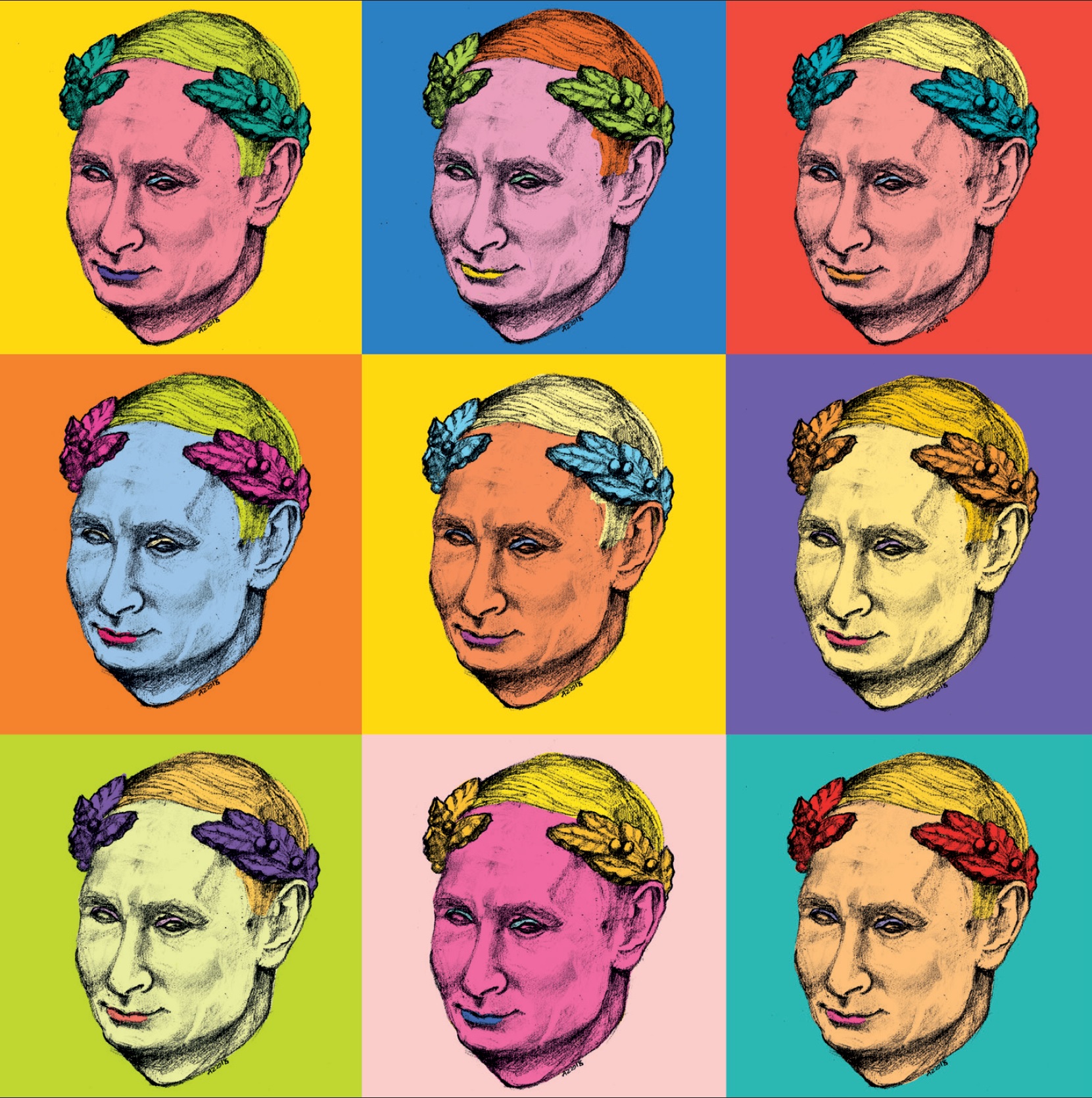
Drawing by Andrzej Zaręba, courtesy of New Eastern Europe
Post-Putin
Putin has clearly been hunting for a successor ever since giving Medvedev an audition in 2008. Indeed, one of the main talking points and parlour games for the Moscow chattering classes is identifying the next president. What is striking, though, is the extent to which almost any viable candidate would actually represent a step away from the ideological mission, and back towards kleptocratic pragmatism. Those who do appear to be genuinely motivated by Putin’s rhetoric of mission (such as former Crimean prosecutor and now member of the State Duma Natalia Poklonskaya) are regarded by their own peers as naïve outsiders at best, and as dangerous fanatics at worse.
Three ingredients are lacking for Putin to be able to hand over the humdrum duties of governance. The first is a suitable replacement, and that will be a priority once the elections are out of the way. It is likely to take years, and quite possibly the chosen one will not be one of the names currently bandied about, such as Medvedev (the unthreatening chairman of the board), Moscow mayor Sergei Sobyanin (the practical manager) or minister for economic development Maxim Oreshkin (the technocratic wunderkind). Instead, we are seeing a sustained turnover, as a new generation of the elite is brought into the positions which will test and season them, giving Putin a suitable ‘bench’ from which to select.
The second is some kind of role that will grant Putin public status and practical security. To this end, there is already talk of some kind of constitutional change to create a new position, perhaps the chair of the State Council, currently a consultative body, but in any case some kind of ‘father of the nation’ role. Political analyst Evgeny Minchenko calls this a ‘Russian Ayatollah,’ but we could just as easily consider it an elected and constitutional tsar. This would satisfy his ego, reassure him that he could continue to provide guidance to the system and buttress the protection he could get from his friends and allies.
The third is getting an agreement between the ‘two Putins’, as outlined above. This may turn out to be the hardest to secure. His failure to take the wider elite with him in his personal journey to zealous champion of a restored Russia means that, almost certainly, the regime that follows him will be more kleptocratic than ideological, closer to early than late Putin. He is likely to want to see a collective leadership of sorts rather than a ‘new Putin’, as this will also grant him greater scope to protect himself and his legacy. That too is likely to encourage a default towards the kleptocrats than the ideologues.
This is the challenge for Putin after the March election: does he buy himself security at the expense of his current nationalist mission, or does he maintain the dream, but only by staying in place until fate, political machinations or human frailty finally topple him. In 2008, Putin famously said that as president he ‘worked like a galley slave, sparing no effort’. It is time for Putin-the-man to decide whether he will unshackle himself from the oars and let Putin-the-cabal take over.
Published 14 March 2018
Original in English
First published by New Eastern Europe No 2 (XXXI)/2018 (March/April 2018)
Contributed by New Eastern Europe © Mark Galeotti / New Eastern Europe / Eurozine
PDF/PRINTPublished in
In collaboration with
In focal points
Newsletter
Subscribe to know what’s worth thinking about.
Related Articles
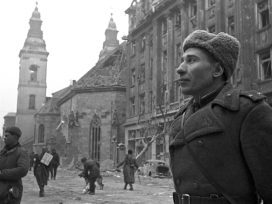
Two opposing interpretations of 1945 form the ideological core of today’s confrontation between Russia and the states of central and eastern Europe. Both are reactions to the collapse of the Cold War order.
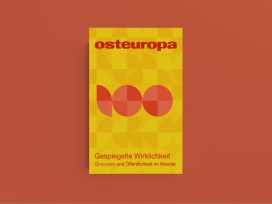
In the spirit of the times and against the grain
Osteuropa 1–3/2025
Osteuropa at 100: Manfred Sapper on the history of the journal from Weimar to the present; Gerd Koenen on a century of German–Russian projections; Katharina Raabe on eastern European literature in translation; Dorothea Redepenning on the bilateral politics of classical.




